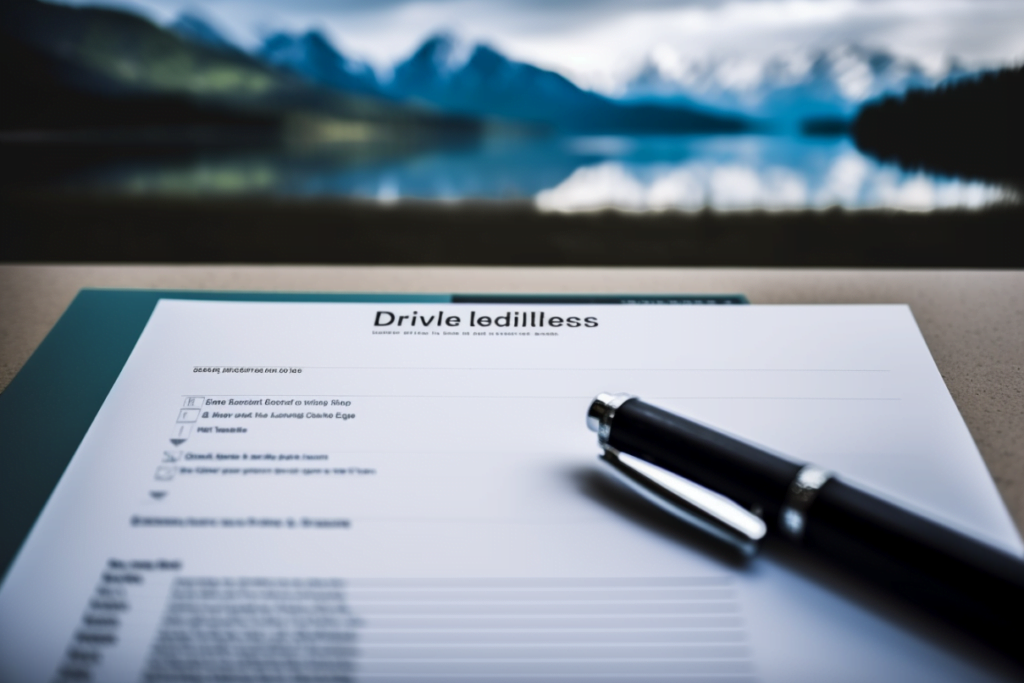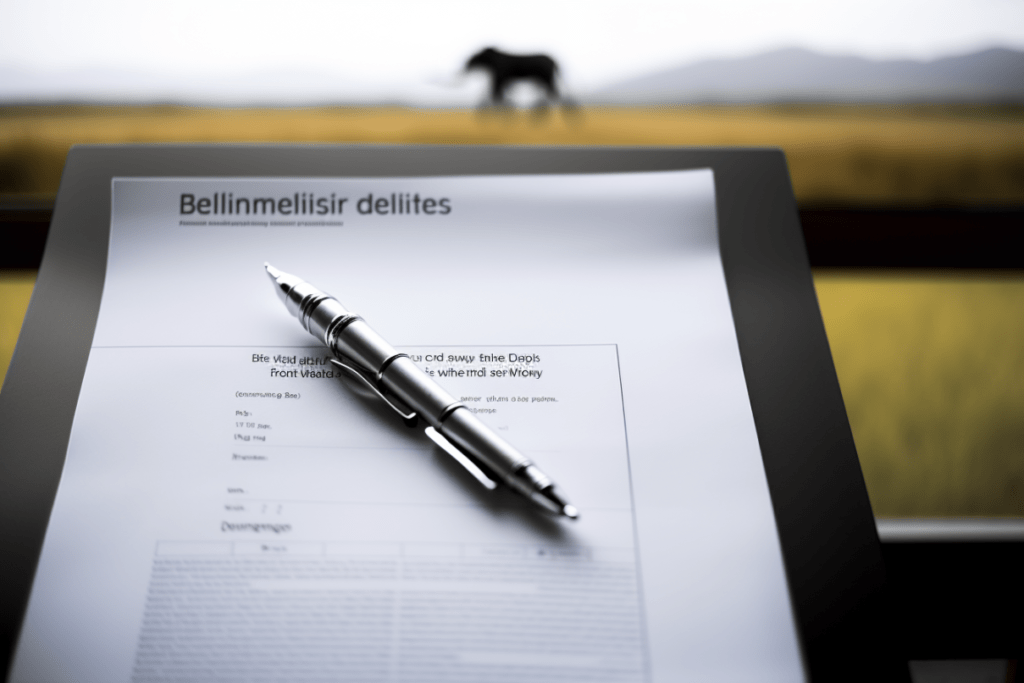Using Your Experience to Build Your Professional Resume
How To Say You Were A Server On A Resume – If you have experience working as a server, it can be challenging to know how to properly showcase that on your resume. In this article, we provide tips and examples to help you effectively communicate your serving experience to potential employers.

As a professional, you may have started your work as a server in the restaurant sector. This professional path allows you to build both hard and soft skills that are transferrable to other industries. Listing your volunteer experience on your resume might help you impress prospective employers.
Military Service Experience on Your Resume
When should you mention your military service experience on your resume? The answer is straightforward. Regardless of your industry, it is critical to include all of your service experiences to minimize gaps in your employment history. But, when you get more relevant job experience, you should think about deleting service roles from your resume. If you have a wealth of relevant skills, it is advised that you delete service roles held more than 10-15 years ago. As your career grows, you may be able to combine your service experiences into a single field.
You may have gained significant talents that are transferrable to other industries during your military service. Don’t be afraid to highlight these skills in your Resume. Here are some examples of transferable skills you may have acquired:
- Leadership: As a military member, you may have held positions of leadership and gained the capacity to inspire and motivate others.
- Problem-solving: The military teaches people how to solve issues under pressure, which is a vital talent in any business.
- Detail-oriented thinking: Precision and accuracy are required in the military, which applies well to sectors such as finance and engineering.
- Communication: Communication is essential in the military, and the ability to communicate well may help you in any field.
- Teamwork: Military service promotes teamwork, which is a useful ability in any profession.
Focus on how your military service has prepared you for success in your current or intended employment when structuring your experiences on your resume. To express your successes, use active verbs such as managed, trained, or led. Make an effort to measure your accomplishments whenever feasible.
Highlighting Your Skills and Experience on Your Resume
For example, if you taught a group of troops, provide the number of people you trained as well as the result of their training. Finally, volunteer work might be an excellent addition to your résumé. Listing your military experience on your Resume will help you exhibit the talents and qualities you’ve gained while serving, making you a more appealing candidate to future employers.
Important Qualities to Highlight
While applying for a job, it is critical to highlight your qualities and talents. Good communication and interpersonal skills are highly regarded attributes. It’s also crucial to demonstrate your capacity to work in a high-pressure, fast-paced environment, as well as your conflict resolution and problem-solving skills. Attention to detail, multitasking abilities, cooperation and teamwork skills are all desired.
There are a few crucial elements to remember when portraying your service job experience on your CV. To begin, use bullet points to break up long paragraphs and make your experiences simpler to read. To make it more lively and interesting, begin each bullet point with an action verb. In addition, quantify your experiences by displaying your achievements using numbers, percentages, or other relevant information. Here are some CV samples of how to phrase your service professional experiences:
- I managed a server team and raised customer satisfaction by 25%.
- New service methods were developed and executed, resulting in a 20% increase in sales.
- During order taking and delivery, I maintained a perfect accuracy rate of 100%.
- Resolved customer difficulties and problems with a 95% success rate.
Including your volunteer experience on your resume might help you get your ideal job. Don’t underestimate the worth of the skills you learned while serving. You may showcase your service experiences and attract the attention of prospective employers by following the guidelines in this article. If you have prior service experience, you might consider consolidating your work history into a single section on your resume.
Creating an Effective Resume with Military Experience

This will provide you more room to emphasize important positions if necessary. As an example: Professional Wait Crew at The Beaches Brewery in Seattle from 2011 to 2013. Redmond’s Kelsey’s Restaurant Bar and Grill, 2013-2015 The Stone Lion, Seattle, 2010-2011
Highlighting Transferable Skills and Achievements
It is critical to highlight your transferrable skills and achievements when adding your service job experience to your CV. To begin, list your prior employment in reverse chronological order, beginning with the most recent. Next, highlight relevant abilities to the position you’re going for, such as conflict resolution, issue solving, and great customer service. Include any accolades you’ve earned for your job, such as customer service awards, on your resume. Adding numbers or data may help improve the impact and readership of your resume.
These are six easy things to take when writing about your military history on your resume:
- When outlining your service work experience, use reverse chronological order.
- Transferable talents relevant to the work you’re seeking for, such as customer service, dispute resolution, and attention to detail, should be highlighted.
- Quantify your achievements using numbers, percentages, or other pertinent information.
- To express your successes, use active verbs such as managed, trained, or led.
- Maintain simple and precise wording.
- Proofread your CV thoroughly to eliminate typos and mistakes.
In conclusion, if you have service experience, it is critical to highlight your transferrable abilities and achievements on your CV. You may construct a fascinating and effective resume that will capture the attention of prospective employers by following these easy steps. If you’re searching for a new career, make sure your resume highlights your transferrable talents and applicable qualities.
Provide any distinctions or medals you’ve gotten for your job, and show your achievements using facts or statistics. Make your resume simple and easy to read, and personalize it to the position you’re looking for.
Highlighting Restaurant Experience on Your Resume
If you have previous experience working in a restaurant or hospitality industry, be sure to include it on your CV. Here are some recommendations for successfully marketing your restaurant experience:
Tips for Successfully Portraying Your Restaurant Experience
- Provide your work title. Be sure to mention the title you held while working at the restaurant or institution when stating your job title on your resume. Include your most recent job title if you were promoted during your time there. Under the duties and responsibilities section, you may also provide information regarding your promotion.
- Indicate if the employment is temporary or contract labor. Use the phrase Temporary Head Server, for example, to emphasize that this was a temporary job.
- Highlight your transferrable abilities. Restaurant experience may teach essential transferrable skills, such as customer service, collaboration, and problem-solving.
- Calculate your achievements. Use facts or statistics to demonstrate your accomplishments, such as increased sales or improved customer satisfaction.
- To explain your obligations, use action verbs. Each bullet item should begin with an active verb, such as managed, arranged, or trained.
- Make your CV unique for each job application. Make your CV relevant to the job you’re looking for by emphasizing the most relevant abilities and experience.
You may properly exhibit your restaurant experience on your resume and boost your chances of being recruited by following these tips. Remember to highlight your transferrable talents and utilize facts to back up your claims.
If you’re looking for work in the hospitality business, you should emphasize your restaurant expertise on your CV. Here are some pointers on how to successfully portray your experience:
- Provide the name and address of the eatery. Provide the company’s name as well as its address, including city and state. Provide the city and nation where you worked if you worked in another country.
- Indicate the days and hours you worked. Specify the months and years you started and stopped working, or just the years you worked.
Emphasizing Restaurant Expertise on Your Resume and Cover Letter
Regardless of how long you worked in a service role, be sure the information on your CV is correct. Determine your roles and responsibilities. Make a brief outline of your job responsibilities. Utilize bullet points and keep your list to seven things or less, emphasizing on the most difficult or critical activities you did. As an example:
- By offering great customer service, we were able to keep customer satisfaction ratings over 90%.
- New staff were instructed on restaurant policies and procedures.
- I managed a team of servers to guarantee that they ran well during peak hours.
- Customer difficulties and concerns were successfully handled.
You may impress potential employers and boost your chances of finding a job in the hospitality sector by giving detailed facts such as job titles, firm names and locations, and your responsibilities and obligations. Finally, emphasizing your restaurant expertise on your resume might help you get a position in the hospitality business. Provide correct facts and concentrate on the most critical parts of your experience, such as customer service and team management. You can successfully exhibit your skills and stand out to prospective employers if you follow these guidelines.
While writing your CV, make it brief, simple to read, and relevant to the job you’re looking for. Your cover letter, on the other hand, gives you the chance to delve into deeper depth about your service experience and impress prospective employers. Here are some pointers for putting your volunteer experience into two kinds of cover letters:
Cover Letter for a Career in the Restaurant Industry
If you’re looking for a position in the same field, utilize your cover letter to elaborate on your previous experience. Add information on the sort of cuisine you’ve worked with, the size of the restaurant, the number of customers served every shift, any difficulties you’ve had, and any awards or accolades you’ve gotten.
Tips for Including Restaurant and Military Experience on Your Resume and Cover Letter

Emphasize Your Transferrable Skills
As a professional, you may have started your work as a server in the restaurant sector. This professional path allows you to build both hard and soft skills that are transferrable to other industries. Listing your volunteer experience on your resume might help you impress prospective employers. When should you mention your military service experience on your resume?
The answer is straightforward. Regardless of your industry, it is critical to include all of your service experiences to minimize gaps in your employment history. But, when you get more relevant job experience, you should think about deleting service roles from your resume. If you have a wealth of relevant skills, it is advised that you delete service roles held more than 10-15 years ago.
As your career grows, you may be able to combine your service experiences into a single field. You may have gained significant talents that are transferrable to other industries during your military service. Don’t be afraid to highlight these skills in your Resume. Here are some examples of transferable skills you may have acquired:
- Leadership: As a military member, you may have held positions of leadership and gained the capacity to inspire and motivate others.
- Problem-solving: The military teaches people how to solve issues under pressure, which is a vital talent in any business.
- Detail-oriented thinking: Precision and accuracy are required in the military, which applies well to sectors such as finance and engineering.
- Communication: Communication is essential in the military, and the ability to communicate well may help you in any field.
- Teamwork: Military service promotes teamwork, which is an useful ability in any profession.
Highlight Your Achievements
For example, if you taught a group of troops, provide the number of people you trained as well as the result of their training. Finally, volunteer work might be an excellent addition to your résumé. Listing your military experience on your Resume will help you exhibit the talents and qualities you’ve gained while serving, making you a more appealing candidate to future employers.
Tips for Including Restaurant Experience on Your Resume
If you have previous experience working in a restaurant or hospitality industry, be sure to include it on your CV. Here are some recommendations for successfully marketing your restaurant experience:
- Provide your work title: Be sure to mention the title you held while working at the restaurant or institution when stating your job title on your resume. Include your most recent job title if you were promoted during your time there. Under the duties and responsibilities section, you may also provide information regarding your promotion.
- Indicate if the employment is temporary or contract labor: Use the phrase Temporary Head Server, for example, to emphasize that this was a temporary job.
- Highlight your transferrable abilities: Restaurant experience may teach essential transferrable skills, such as customer service, collaboration, and problem-solving.
- Calculate your achievements: Use facts or statistics to demonstrate your accomplishments, such as increased sales or improved customer satisfaction.
To explain your obligations, use action verbs: Each bullet item should begin with an
Tips for Highlighting Your Service Experience on Your Resume and Cover Letter
Including Your Service Experience on Your Resume
Be specific and detailed when presenting your service experience on your resume.
Use the following basic template:
- Job Description
- Name of Organization
- Location
- Dates of Employment
- A Summary of Your Work Duties, Achievements, and Contributions
Highlight the value you brought to the company to make your experience stand out. For example, include if you helped with marketing campaigns or worked in the kitchen during busy hours.
Highlighting Your Experience in a Cover Letter
Use your cover letter to explain the important skills you learned while serving when seeking employment outside of the restaurant industry. Here is an example:
Throughout my eight years as a server for various companies, I honed my skills in dispute resolution, problem-solving, and customer service. I learned how to handle high-pressure situations professionally and with attention to detail, consistently exceeding customer satisfaction targets.
Your service experience can be a plus in any job search. By highlighting your transferable skills and accomplishments, you can demonstrate your value to potential employers and increase your chances of being hired. Be sure to customize your cover letter and make it concise, accurate, and professional.
Incorporating Service Experience into Your Resume and Cover Letter

Highlighting Your Restaurant Experience
If you have previous experience working in a restaurant or hospitality industry, be sure to include it on your CV.
Here are some recommendations for successfully marketing your restaurant experience:
- Provide your work title, and mention the title you held while working at the restaurant or institution when stating your job title on your resume. Include your most recent job title if you were promoted during your time there. Under the duties and responsibilities section, you may also provide information regarding your promotion.
- Indicate if the employment is temporary or contract labor. Use the phrase Temporary Head Server, for example, to emphasize that this was a temporary job.
- Highlight your transferrable abilities. Restaurant experience may teach essential transferrable skills, such as customer service, collaboration, and problem-solving.
- Quantify your achievements. Use facts or statistics to demonstrate your accomplishments, such as increased sales or improved customer satisfaction.
- To explain your obligations, use action verbs. Each bullet item should begin with an active verb, such as managed, arranged, or trained.
- Make your CV unique for each job application. Make your CV relevant to the job you’re looking for by emphasizing the most relevant abilities and experience.
If you’re looking for a new career, make sure your resume highlights your transferrable talents and applicable qualities. Provide any distinctions or medals you’ve gotten for your job, and show your achievements using facts or statistics. Make your resume simple and easy to read, and personalize it to the position you’re looking for.
Incorporating Volunteer Experience
Your volunteer experience may also be valuable when looking for a job. Here are some tips for highlighting your volunteer work in your resume and cover letter:
- Be particular and comprehensive when presenting your service experience on your CV. Use the basic template below:
- [Job Description]
- [Name of Organization]
- [Location]
- [Dates of Employment]
- [A Synopsis of Your Work Duties, Achievements, and Contributions]
- Highlight the value you offered to the company to make your experience stand out. Include in your job activities, for example, whether you aided with marketing campaigns or in the kitchen at busy hours.
- Use your cover letter to explain the important talents you learned while serving while searching for employment outside of the restaurant sector.
- Make sure your application materials are tailored to the exact position you’re seeking for and that they are brief, accurate, and professional.
You can show your worth to prospective employers and boost your chances of being hired by stressing your transferrable skills and achievements in your resume and cover letter. Make sure your application materials are tailored to the exact position you’re seeking for and that they are brief, accurate, and professional.
Tips for Highlighting Service Experience on Your Resume and Cover Letter
Including Service Experience on Your Resume
Regardless of the business, your volunteer experience may be a useful asset to include on your resume and cover letter. You may show your worth to potential employers by offering detailed facts and emphasizing the abilities you’ve acquired. It’s critical that your resume and cover letter be brief, precise, and customized to the position you’re looking for.
Consider adopting the following structure to successfully include your service job experience into your resume:
- Job Title: Kitsu Sushi Restaurant Server
- Location: New York, New York
- Dates of Employment: January 2011 – April 2013
- Job Description:
- Set up tables, utensils, and cleaned the dining area
- Memorized six sushi roll specials and drink specials during each shift
- Delivered customers’ meals on time and confirmed orders before serving
- Managed cash and processed payments using computerized methods
You may emphasize the skills and achievements you’ve obtained via volunteer work in your cover letter.
As an example:
“My experience in the food and service sectors has given me great communication, problem-solving, and cooperation skills, which I feel are necessary for success in any profession. As a server, I learned how to handle high-pressure situations professionally and with attention to detail, and I routinely outperformed customer satisfaction scores. You may make your CV and cover letter stand out to prospective employers by emphasizing the unique duties, responsibilities, and successes of your service job experience.”
Transferrable Skills from Service Roles
Many transferrable abilities are widespread in service roles and might be useful in other sectors. Excellent communication skills, problem-solving talents, attention to detail, dispute resolution, and remarkable customer service are examples of these capabilities. These abilities may be emphasized in your resume and cover letter to demonstrate the value you can offer to a company.
Additionally, service experience can demonstrate your ability to work under pressure, multitask, and work in a team-oriented environment, all of which are highly desirable skills in many fields.
Including Military Service on Your Resume
You should fill out a simple template with your work title, organization name, location, dates of employment, and a point-form explanation of your job tasks, responsibilities, and achievements. Highlight the value you brought to the company, such as contributing with marketing or assisting the kitchen at high times.
Including Volunteer Work on Your Resume
You should include a volunteer role on your resume if it’s relevant to the job you’re applying for, showcases transferable skills, or demonstrates your passion for a certain cause. Make sure to highlight the specific duties and accomplishments of your volunteer work and how they can be applied to the position you’re seeking.volunteer work on your resume if it is relevant to the job you’re applying for and demonstrates skills or experience that would be valuable in the position.
It’s also a good idea to include volunteer work if you have limited job experience, as it can help to demonstrate your work ethic and dedication to causes outside of paid employment. However, be mindful of the space on your resume and ensure that any volunteer work you include is concise and directly relevant to the job you’re applying for. Additionally, if you have extensive volunteer experience that is not directly related to the position, you may want to consider creating a separate section on your resume specifically for volunteer work.
FAQ:
Q: How can I highlight my restaurant experience on my resume?
A: Mention your job title, company name and address, and include bullet points of your duties and responsibilities. Emphasize your transferrable skills and achievements, and tailor your resume to the specific job you’re applying for.
Q: What transferrable skills can I learn from a service job?
A: Service jobs teach excellent communication skills, problem-solving, attention to detail, dispute resolution, and customer service. Additionally, they demonstrate your ability to work under pressure, multitask, and work in a team-oriented environment.
Q: How should I include my military service on my resume?
A: Use a simple template that includes your job title, organization name, location, dates of employment, and a point-form explanation of your job tasks, responsibilities, and achievements. Highlight the value you brought to the company, to use action verbs and quantify your accomplishments, and emphasize transferrable skills such as leadership, teamwork, problem-solving, and attention to detail.